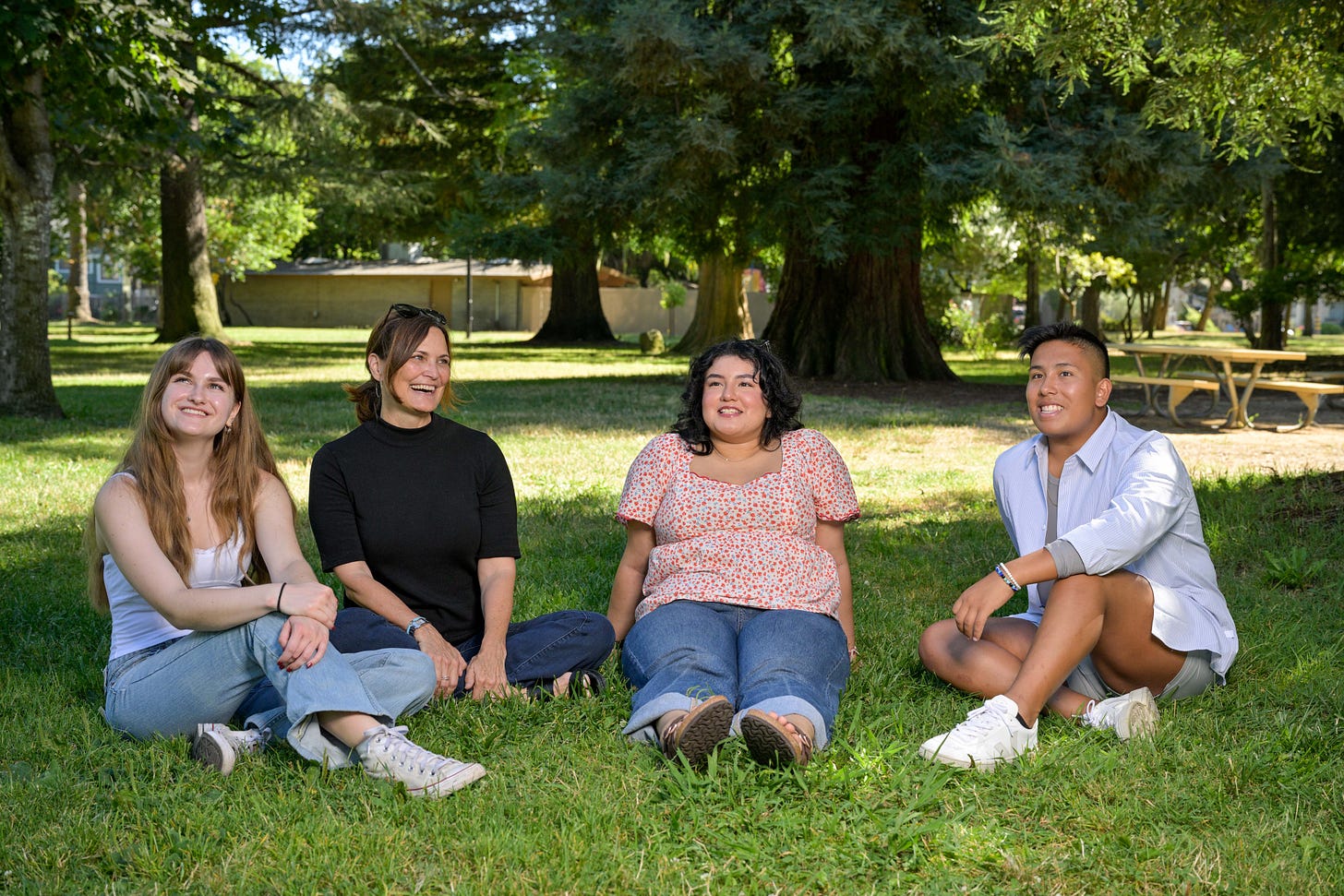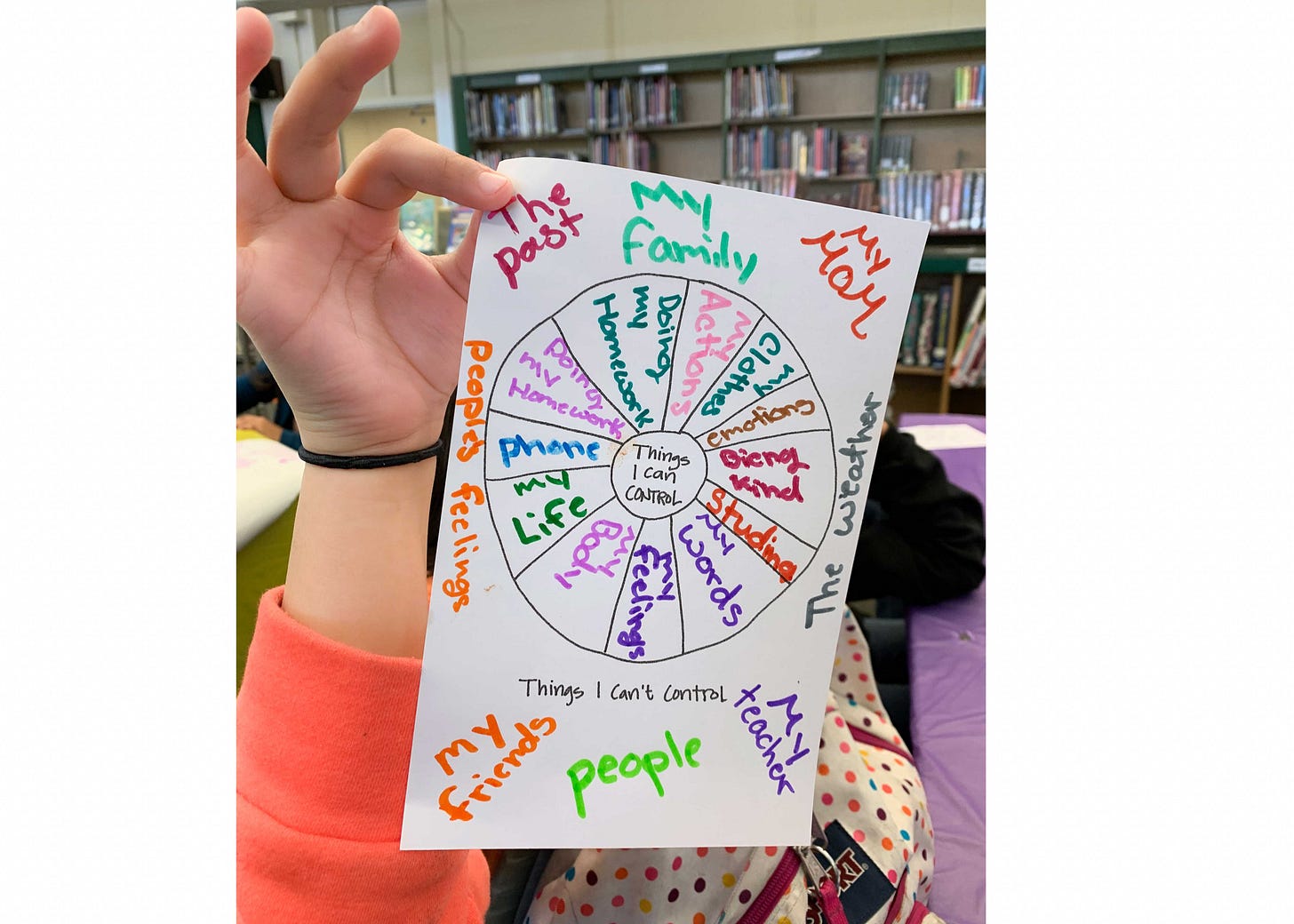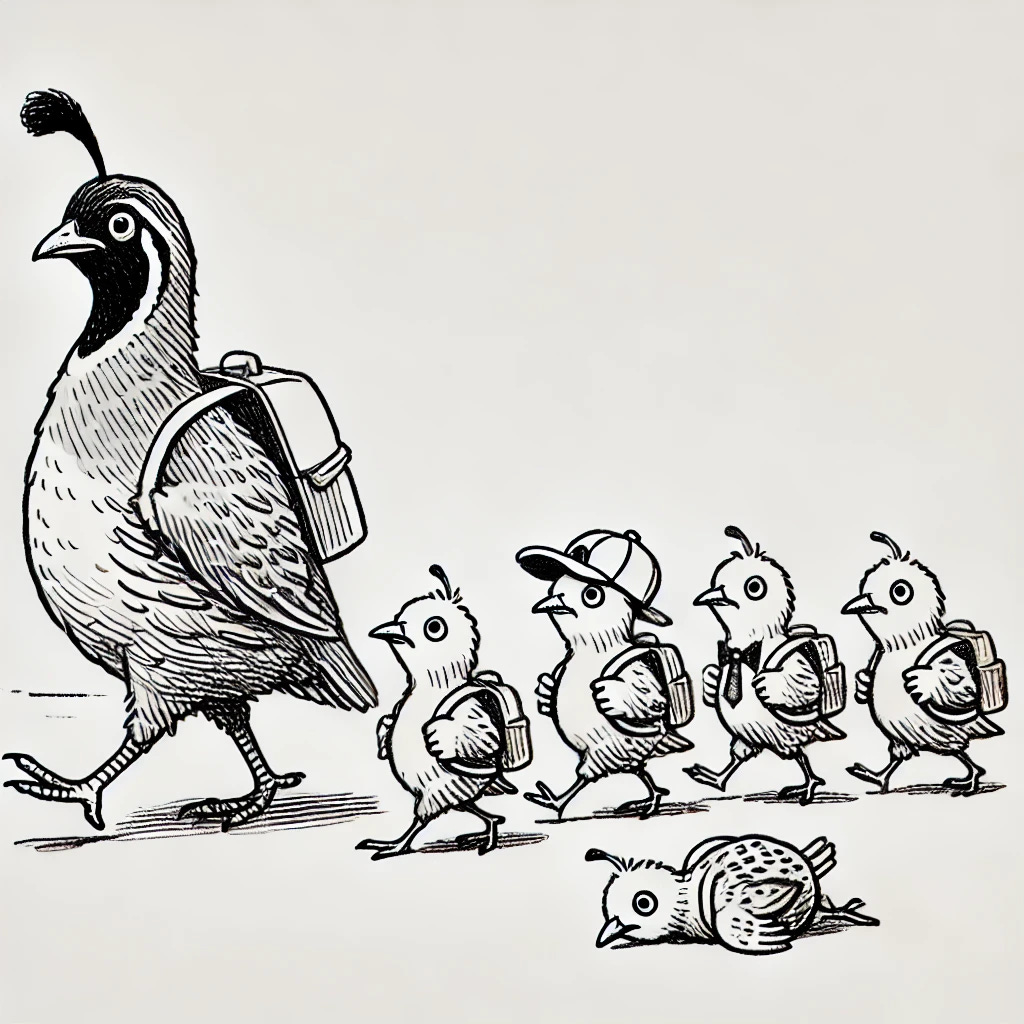Sunday E-dition: Back to School — Mental Health Tips for Caregivers and Students
By Kellie Kennedy with Charlotte Hajer
NAPA VALLEY, Calif. — It’s that time of year: We’re going back to school. It’s a season that can evoke lots of different feelings. Maybe we’re excited: The start of the year comes with a sense of promise, opportunity and newness. But maybe we’re also a little nervous: Going back to school can mean transition – and transitions can be bumpy.
Most of us humans are creatures of habit: We take comfort in the expected. And when we find ourselves in an unknown situation, our fight-or-flight response takes over, leaving us feeling overwhelmed. A new school year can mean a new teacher and new classmates, maybe even a whole new school. Students might be navigating changing identities as they grow older amid new academic expectations from their teachers, their caregivers and even from themselves.
As caregivers, meanwhile, we find ourselves supporting our kids with all these transitions while navigating our own back-to-school responsibilities – packing lunches, budgeting for school supplies, scheduling wellness checkups and calendaring back-to-school nights. Some of us might be struggling with our growing child’s transition toward more independence as the year starts back up.
Your keys to success are flexibility, patience and acceptance. Give yourself and your kids some grace as you adapt to the changes that a new school year brings.
But while these transitions can feel overwhelming, there are some strategies that can help both caregivers and young people sail through it all a little more smoothly. These include finding a good routine, making a plan and strong self-care.
For us creatures of habit, a strong routine can make even the most unpredictable situation feel more manageable. Routines have been shown to improve our sleep, reduce stress and make us feel stronger when faced with challenges. Routines come in all shapes and sizes, so give some thought to what will work for your family.

Back-to-school routines function best when they include some consistency from day to day, but other than that, only you will know what suits your family when it comes to wakeup times, breakfast, transportation to school, after-school plans, dinner and bedtime. And keep in mind that a good routine requires some flexibility. If you’ve overslept, that doesn’t have to mean that there’s no more time for breakfast. Maybe you simply opt for a quicker breakfast option that day. Staying consistent with your routines helps everyone feel safe and confident as they navigate whatever unknowns the day might bring.
Like routines, a good plan can also help make new situations feel a little less scary. Developing a plan forces you to consider ahead of time what a scenario might look like and how you’ll respond, which means that when the time comes, it all feels a little less unknown. Making a plan might look like visiting school a few days before classes start, scoping out your new homeroom, reviewing your class schedule and meeting your teacher. It might also include identifying a safe space or two on campus where your student might go if they begin to feel overwhelmed and learning about the supportive resources available at school.
To ensure a smooth transition for everyone, communication is vital. When making a plan or developing a school-year routine, include your child. No matter their age, talking with them about the transitions that come with going back to school helps provide context and understanding, gives them a sense of agency and provides a safe space for them to share any feelings they might be having. If they express anxiety, perhaps this is your opportunity to help them reframe what they’re feeling or make a plan to cope in healthy ways. And if your young person doesn’t want to talk, don’t worry. They’ll still feel your support just because you are spending time with them. You might even find them unexpectedly opening up during a shared activity.

Finally, self-care is an important foundation for our ability to overcome uncertainty. And the foundations of self-care are good sleep and nutrition, both of which improve our ability to manage stress, maintain a healthy attention span and navigate our emotions. To set your child up for success here, set an age-appropriate bedtime, stock your kitchen with healthy food options and, as always, include them in developing good self-care habits.
Don’t forget that self-care is important for caregivers, too. None of us can be present for our loved ones if we haven’t taken care to maintain our own reserves. So what is your self-care plan? What are important parts of your routine? As an anchor of stability and support for the young people in your life, it’s important to recognize that the back-to-school transition might be challenging for you, too. A critical part of managing that stress is validating your emotions, setting realistic expectations for yourself and making sure you take time to recharge your own batteries from time to time.
Finally, remember that returning to school is a process. Rarely will your new routines roll out smoothly from day one. Your keys to success are flexibility, patience and acceptance. Give yourself and your kids some grace as you adapt to the changes that a new school year brings. And you’ll see – with these tools under your belt, the transition will be smoother than you expected.
For more support around navigating back-to-school transition, check out these resources:
If you or someone you love is experiencing a mental health crisis, call or text the 988 Suicide and Crisis Lifeline.
If you or someone you love needs mental health or wellness support, please visit our Mentis Community and Youth Resource Database. Mentis is one of Napa’s oldest nonprofits and provides bilingual, affordable mental health services to people of every age and income level.
Kellie Kennedy, LMFT, is the schools program senior manager at Mentis and a parent. She coordinates Mentis’ mental health services at school campuses and community sites throughout Napa County and Sonoma Valley. As she continues to develop her own skills as a parent, she enjoys bringing a focus on parenting and parenting support into her work with local families.
If today’s story captured your interest, explore these related articles:
Sunday E-dition: End-of-Life Planning for Peace in Challenging Times
Sunday E-dition: Retired Judge Brings Real Napa Valley Crimes to Life
Sunday E-dition: WineaPAWlooza Raises $1.1 Million for Animals
Charlotte Hajer is Mentis’ development director. She holds a Ph.D. in cross-cultural mental health and loves to write about the way individuals experience and navigate the social and cultural world around them.
Levity Corner
Caption contest: Pick your favorite caption or add your own in the comments below.
Possible captions:
"Can someone carry me? I’m exhausted just thinking about it."
"I’m conserving my energy for recess."
"Can anyone explain to me why school starts so early?"
"I was told there’d be snacks on the way."
"Wake me up when it’s time for lunch."
Last week’s winner
In "Sunday E-dition: The Night I Saw The Beatles,” the winning caption was "What do you mean 'Paul is taken'?,” with 50% of the votes.
Last Week
In her piece "The Night I Saw The Beatles," Sasha Paulsen reminisced about attending the Beatles' first U.S. concert at San Francisco's Cow Palace in 1964. She recounted the excitement of being a young fan, the bond with her friends over their shared love for the band and the thrill of seeing Paul McCartney, who held special significance for her as a fellow left-hander. Paulsen also reflected on the passage of time, her enduring friendship and the way that night remains a vivid, joyful memory despite the decades that have since passed.
Penny Pawl provided a whimsical guide to composting with red wigglers in her article "A Guide to Composting with Red Wigglers." Written from the perspective of a worm named Wanda/Willie, the piece detailed the care and maintenance of a worm bin, the benefits of using red wigglers for composting, and the nutritional value of their castings. Pawl also highlighted the work of Michigan State University's Mary Appelhof, who popularized worm composting, and shared practical tips for starting a bin at home, emphasizing its environmental advantages.
Rebecca Yerger chronicled the 150th anniversary of Napa’s First Presbyterian Church in her article "Napa’s First Presbyterian Church Turns 150 Years Old." Yerger highlighted the church’s historical and architectural significance, noting its designation as a California State Historic Landmark and its Gothic Revival design. Rev. Genesis Auste emphasized the church's resilience and its importance to the Napa community, especially in light of recent repairs following a windstorm.
In "Proof That Napa’s Older Cabs Can Age," Dan Berger recounted a series of tastings organized by wine collector Chris Clever, which showcased the remarkable aging potential of Napa Valley cabernets from the 1960s to the 1980s. Conducted across several Napa venues, these events featured perfectly stored wines that demonstrated incredible youthfulness and complexity, challenging the long-held belief that Bordeaux wines age better than their Californian counterparts. Berger emphasized that these tastings, involving notable participants and meticulously selected wines, solidified the notion that Napa’s historic cabernets can indeed stand the test of time.
In her article "Ten Years Later: A Reflection on the 2014 South Napa Earthquake," Sasha Paulsen recounted her experience of the 2014 Napa earthquake, reflecting on the event’s impact on the community and sharing vivid memories from her and others. Although Paulsen was in Los Angeles at the time, she detailed the shock of returning to find Napa's familiar landmarks damaged and streets eerily empty. Through firsthand accounts from local writers, Paulsen illustrated the quake's destruction and the resilience of Napa residents, who picked up the pieces and rebuilt, much as they had done after previous disasters. The article highlighted the enduring spirit of the Napa community in the face of natural calamities.
Next Week
Next week we have more interesting articles from a host of Napa Valley Features contributors. The Master Gardener series on Wednesday will provide gardening insights, while Dan Berger will focus on wine topics on Thursday. We’ll hear from Evy Warshawski about efforts to fund local performing arts and Paul Wagner on the challenges and opportunities facing the tourism industry. Plus much more.








